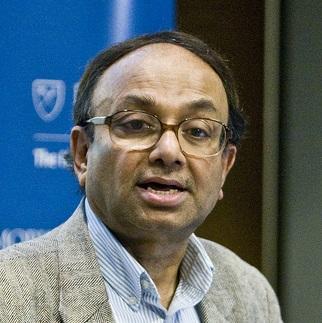Political Clientelism and Government Accountability in West Bengal: Theory and Evidence
Many developing countries are decentralizing delivery of public services to local governments in the hope this will enhance accountability of service providers. To what extent is it actually succeeding? As highlighted by the 2004 World Development Report, this issue has become highly relevant in large parts of the developing world, given widespread evidence of serious problems of corruption, diversion of antipoverty programs to groups that are not intended beneficiaries, and high rates of absenteeism among service providers in health and education. These problems have restricted effectiveness of spending on essential development programs. The promise of decentralization of public service delivery is based on the hope that processes of local democracy will induce required standards of accountability of service providers. Research is thus needed on accountability of government, its determinants and whether democratic processes are likely to induce accountability. One of the main dangers frequently emphasized in the literature on the political economy of developing countries is the possibility that governments will be subject to capture by elites, especially in contexts of high economic and social inequality. A number of empirical analyses in various parts of the developing world have sought to gauge the seriousness of this problem, by measuring the extent to which service deliveries have been mis-targeted to those not intended to be the beneficiaries of these programs. Using this as a measure of lack of accountability, researchers have sought to identify sources of variation in accountability, such as inequality, literacy or electoral institutions. We argue that this traditional measure of government accountability in developing countries misses a key distortion: the phenomenon of political clientelism. This project will develop a theory of clientelism, clarify the distinction as well as the relation between clientelism and capture, provide empirical evidence of these two phenomena, and illustrate their relevance in understanding political change in rural West Bengal over the past decade. The first part of the project will focus on the concepts of clientelism and capture, using a theoretical model, which is subsequently tested using data from West Bengal local governments. It will exploit randomized reservations of local mayor positions for women and low caste candidates respectively, which we argue correspond to exogenous variations in clientelism and elite capture respectively. We will test predictions of our theory concerning impacts of such reservations on targeting of different kinds of development programs valued differently by the poor and elites. The second part will consist of a survey of households in rural West Bengal to assess their reactions and opinions concerning recent government policies of land acquisition for industrialization, growth of employment opportunities in non-agricultural occupations, and delivery of public services. We plan to use this to test the hypothesis that political support for the incumbent Left Front government has declined over the past decade owing to a decline in clientelistic delivery of services to poor voters by local governments, and a corresponding increase in their perceptions of capture of these governments by traditional and newly emerging elites.





